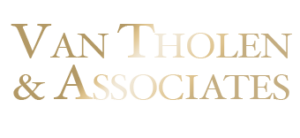It sounds awful, doesn’t it? Disaster, that’s something we see on the news, nothing that will ever happen to me or my business, right?
Over my 33-year career in the waste and recycling industry, I experienced a multitude of disasters. Our office burned down, 4 trucks had crippling fires onboard, trucks went over on their sides, accidents, disposal sites shutting down, and others I do not care to recount. One night while walking out to my truck, I watched a tornado across the street narrowly miss our property where all our carts and trucks were parked. Take it from me, it can happen to you.
I hope none of you ever have to experience any of these things but if you’re in the business long enough, something is bound to happen. Are you ready? Let’s take a look at a few things you can do to make sure you are prepared in the event of such tragedies.
First off, how’s your relationship with your fellow haulers? If you haven’t made an effort to reach out to a competitor who could be an ally, do so. Talk about these things and what you could do to help each other in the event of an emergency. Some will be uninterested, but others who are willing to talk with you may turn into a great ally in the future. You may even work together to secure contracts you would not otherwise have been able to secure on your own. Recently, one of the members of the Facebook group Mom and Pop trash business for dummies experienced a heartbreaking fire. They reached out to the friends in the group and were met with help from all sides. This is an incredible way for all of us to help each other no matter where we are located.
Second, build a relationship with a heavy equipment dealer who has equipment similar to what you are using close at hand. Open an account with them if you haven’t already so if disaster strikes, you don’t have to wait for credit approval! In addition to dealers, find out who the closest refuse equipment rental company is to your location and again, open an account. In our industry, you can’t just go down to Main Street and get a truck, they are sometimes hard to come by.
The most important part of a disaster response plan is to document what to do if and when disaster strikes. My friend and business partner can laugh now about putting our plan together. We sat down, locked the door, turned off the phones and brainstormed every potential disaster that could befall our humble company. You have to know us to understand how much laughter went into that process but suffice to say that we came up with quite a list. Fortunately, not much of it ever came to pass but we were ready! We had documented everything from loss of equipment or offices to loss of life and what we would do step by step following any of the occurrences. This plan was put in print and all of our employees had access to it. After all, it did include the possibility of John and I perishing while in the same vehicle on our way back from lunch at Five Guys.
I hope none of you has to deal with the worst of what can happen but if you do, be prepared. If you would like to talk more about how to put together a disaster response plan, we would love to talk with you!
Ed Dryfhout
vantholenassociates.com
Below is a picture from 1989. It is a route sheet that survived a fire. While this was before the common use of computers, it is a good reminder to have your data backed up in multiple locations. Fortunately, only the edges were singed. The route sheet was just legible enough to stop follow. More to come on fire in future episodes.


